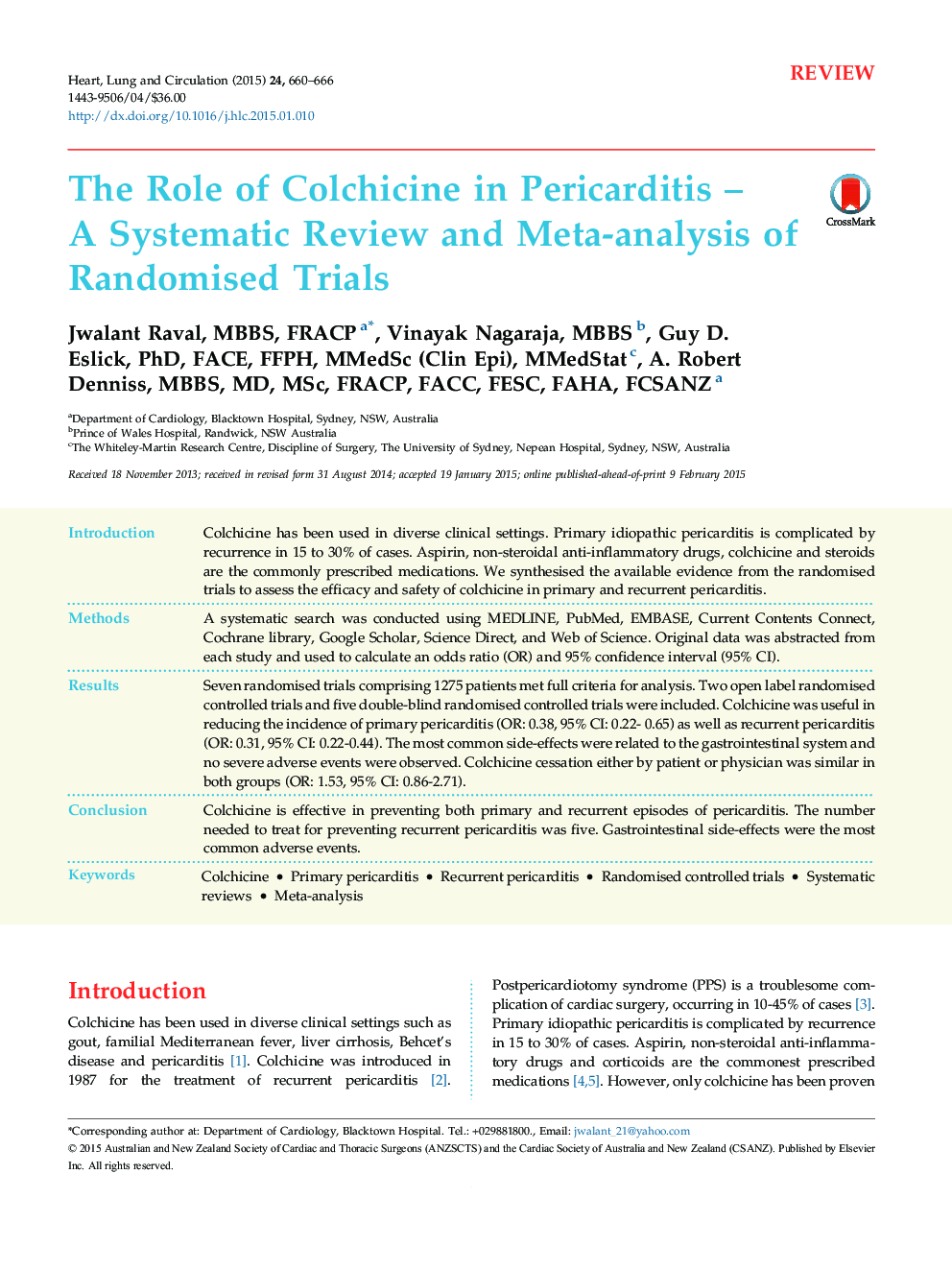| Article ID | Journal | Published Year | Pages | File Type |
|---|---|---|---|---|
| 5958923 | Heart, Lung and Circulation | 2015 | 7 Pages |
IntroductionColchicine has been used in diverse clinical settings. Primary idiopathic pericarditis is complicated by recurrence in 15 to 30% of cases. Aspirin, non-steroidal anti-inflammatory drugs, colchicine and steroids are the commonly prescribed medications. We synthesised the available evidence from the randomised trials to assess the efficacy and safety of colchicine in primary and recurrent pericarditis.MethodsA systematic search was conducted using MEDLINE, PubMed, EMBASE, Current Contents Connect, Cochrane library, Google Scholar, Science Direct, and Web of Science. Original data was abstracted from each study and used to calculate an odds ratio (OR) and 95% confidence interval (95% CI).ResultsSeven randomised trials comprising 1275 patients met full criteria for analysis. Two open label randomised controlled trials and five double-blind randomised controlled trials were included. Colchicine was useful in reducing the incidence of primary pericarditis (OR: 0.38, 95% CI: 0.22- 0.65) as well as recurrent pericarditis (OR: 0.31, 95% CI: 0.22-0.44). The most common side-effects were related to the gastrointestinal system and no severe adverse events were observed. Colchicine cessation either by patient or physician was similar in both groups (OR: 1.53, 95% CI: 0.86-2.71).ConclusionColchicine is effective in preventing both primary and recurrent episodes of pericarditis. The number needed to treat for preventing recurrent pericarditis was five. Gastrointestinal side-effects were the most common adverse events.
